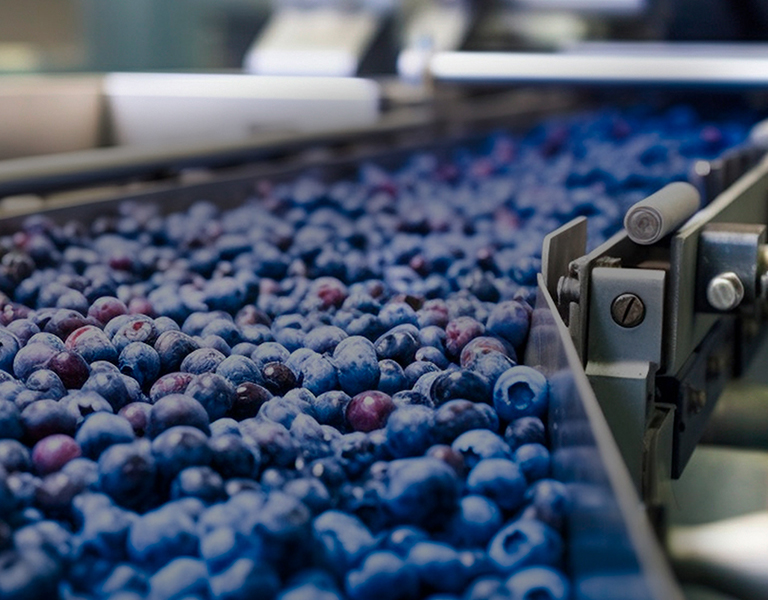Annually, Frito-Lay, the billion-dollar snack empire and food division of PepsiCo uses tons of potatoes for their wide range of snacks. If stacked end-to-end, the potatoes could reach as far as the moon. If this sounds hard to quantify, give some thought to the work that goes into sourcing, preparing and distributing these wildly popular treats – it’s no mean feat. But the company has technology on its side.
When it comes to distribution, Frito-Lay has 25,000 frontline sales employees and around 300,000 retail stores across America. To ensure the necessary amounts and varieties of snacks are delivered to the stores, Frito-Lay tapped into the capabilities of cloud technology. The move to the cloud not only helped the brand create better communication between frontline and dispatch but also gave its team better visibility into speedy routes, delays, available inventory, stocking options, and even timesheets. It goes without saying that Frito-Lay is now well-equipped to handle some key challenges and risks commonly faced by supply chains of this scale.
2023: A roundup of the challenges and a viable solution
Although manufacturers have recovered from most of the challenges brought about by the pandemic, inflation and economic uncertainty have begun to impact global supply chains. Moreover, two of the biggest issues facing manufacturers right now is the lack of skilled staff and supply chain issues, including sourcing bottlenecks, global logistics backlogs, cost pressures, and cyberattacks.
The solution? Being digitally agile. This sentiment is shared by Deloitte’s 2023 manufacturing industry outlook. In a survey of 100 US-based manufacturing executives, 32% mentioned that they hoped to invest in the cloud in the next 12 months to increase operational efficiency. It goes without saying that being a digitally mature manufacturer makes you more immune to the common issues faced across supply chains. Manufacturers with greater digital capabilities can provide better visibility into all aspects of their supply chains.
Cloud technology has become synonymous with transparency and visibility, but its superpowers are wide-reaching. This blog explores what a future on the cloud has to offer manufacturers worldwide.
Going global
Today, most businesses think global with teams spread across the world, most often working remotely. The pandemic had a lot to do with this shift, but the cloud has played a tremendous role in facilitating it. Cloud solutions have made it possible for remote workers to seamlessly interact and share data securely with teams based in multiple parts of the world. A robust cloud solution can even support different currencies and languages.
Being a global manufacturer also means being available to stakeholders 24/7. While this may sound humanly impossible, cloud solutions are stepping up to ensure that data is accessible across borders and devices. Unlike on-prem solutions that call for costly upgrades – being on the cloud gives businesses more up-time enabling businesses to work around the clock.
Transparency beyond traceability
One of the most notable superpowers of the cloud is traceability across all aspects of the supply chain. Through real-time data updates and secure access controls, the cloud enables manufacturers to track and monitor processes, products, or transactions at every stage of their lifecycle. Moreover, the cloud facilitates the collection of vast amounts of information from multiple sources, allowing for comprehensive traceability insights that can help discern trends, improve processes, and create collaborative efforts toward growth. Blockchain is also powered through the cloud – this decentralized distributed ledger collates information entered onto the network in blocks. In the context of the food and beverage industry, it can be used to record all transactions across the supply chain. It goes as far as collating details on the source of the food, giving stakeholders an understanding of the minutest details of how their food traversed from the ‘farm to the fork’.
But beyond traceability, the cloud has a ‘green lining’.
Take the example of Kiviks Musteri – Sweden’s first commercial fruit farm. The company produces a diverse range of fruit and berry-based foods including cider, juices, sauces, and cakes. Kiviks’ orchards are home to more than 70 different varieties of apples. In order to remain competitive in a crowded industry the centuries-old company implemented Infor CloudSuite Food & Beverage. The solution does more than provide traceability across the supply chain, it helps tremendously with its sustainability efforts.
Using the production planning data on CloudSuite, Kiviks Musteri is able to get a sense of how much water they use in their manufacturing process and decide how this water can be repurposed. Additionally, the company is working on reducing electricity consumption and its carbon footprint using the detailed insights provided on its system. The move to the cloud has been a crucial component of its sustainability strategy and journey, helping the company progress towards its goals of reducing electricity consumption, carbon footprint, and water use.
Scale with ease
Much like Kiviks didn’t stay stagnant throughout the years – most manufacturers grow their offerings to keep up with changing demands. This would mean that their systems have to be continuously upgraded which could be a costly and cumbersome affair if the data is stored on a legacy system. But with the cloud, scaling as you grow is as easy as spotting a cloud on a sunny day.
Scaling could happen in two ways, either scaling up (vertically) or scaling out (horizontally). Scaling up involves upgrading the existing infrastructure by increasing the capacity of a single server, such as adding more compute, memory, storage or network to keep system performance at optimal levels. On the other hand, scaling out focuses on distributing the workload across multiple servers, effectively creating a cluster. In other words, scaling up offers deep resource improvements while scaling out provides horizontal expansion to enhance overall system reliance and responsiveness.
With the support of Fortude, leading Australian frozen food manufacturer moved from its legacy ERP system to the integrated Infor CloudSuite Food & Beverage. This move has enabled the company to scale across borders and introduce new business units faster and with fewer configurations.
Secure your data
While scaling on the cloud may seem effortless, is the process of moving all your company’s data to the cloud hazardous in the long run? Cloud platforms offer an array of advanced security measures that legacy systems often lack. Encryption protocols, secure access controls, and regular security updates are integral components of cloud infrastructure, fortifying data against potential breaches.
The centralized nature of the cloud storage allows for efficient monitoring, early threat detection, and rapid incident response. Scalability is also closely linked to security because as new upgrades are introduced to the cloud, you reduce your risk of falling prey to cyberattacks.
An intelligence-driven future
It wouldn’t be wrong to say that your cloud solution helps you be more prepared to face any volatility that lies ahead. Cloud business intelligence is a modern approach to business intelligence that queries cloud data platforms. Cloud BI connects to the cloud data, organizes it, and analyzes it to extract insights. Some Cloud BI tools go a step further and allow users to not only derive insights but to use these insights to drive action.
US-based Harris Ranch is the largest fed-beef producer in California. For a company that has been in operation since the 1930s, there’s a lot at stake. If the company is unable to have intelligence into the most valuable cuts of beef to produce, it would result in waste of raw materials and misuse of labor. Using Infor’s Demand Planning and Advanced Planning solutions powered through the cloud, the company can get more reliable insights into where their energies need to be focused.
With cloud spending estimated to reach $1.8 trillion by 2025, cloud technology is certain to be a definitive part of the future of most businesses. But as adoption grows so does our understanding of its benefits or super strengths. Beyond traceability, cloud technology can strengthen sustainability efforts, enable you to go global, scale through the cloud, and tap into insights that will propel growth.
So, does your business have to be large-scale if it is to invest in the cloud? Not at all. The cloud is the future for most businesses, regardless of scale. At Fortude, we are both a customer and partner of Infor. We help food and beverage companies tailor cloud solutions to meet the unique needs of the industry. Regardless of whether you work with baked goods, beverages, dairy, poultry, chilled, or food ingredients; Infor CloudSuite Food & Beverage can be customized to address your business’ unique requirements and regulations.
Your digital journey doesn’t have to stop with cloud solutions – it can also journey further with the help of automation, data and analytics, and AI.
Stay tuned to learn how businesses can transition from a traditional supply chain to the cloud.
Keen to learn more about how technology can support the sustainability efforts of your F&B business? Read another recent blog on tackling the waste problem in the food and beverage industry with the Cloud.
Subscribe to our blog to know all the things we do


